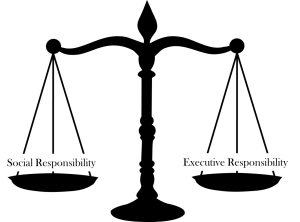Chiquita’s decision to be environmentally friendly and transparent backfired by creating detrimental loss to the company, and accumulating American and Colombian lawsuits. Chiquita’s unsuccessful attempt to fulfill its “social responsibility” further strengthens Milton Friedman’s position that the duty of the “executive agent” is to legally raise the greatest profit for shareholders instead of acting as an unqualified, socially-conscious, civil servant. By acting in accordance to environmental activists like ForestEthics and Rainforest Alliance, Chiquita “agreed… to avoid fuel from Canadian tar sands” enraging Canadian suppliers. In an attempt to make Chiquita transparent, the entire company and its reputation are open to scrutiny. However, Fernando Aguirre, the company’s chief executive, remains confident that “[Chiquita] can do good and do well at the same time.”
My opinion on Chiquita’s future is actually optimistic when considering the stakeholder theory discussed by R. Edward Freeman. In the long run, I believe consumers will appreciate how Chiquita strives to establish itself as an honest, respectable, and clean company making an effort to reform past wrongdoings. In order for business to be successful, it must consider the social- and eco-consciences of its consumers who will not support companies that harm the environment. Major companies are capable or raising awareness; the executive must find the balance between the needs of the firm, stakeholders, and society.
References:
